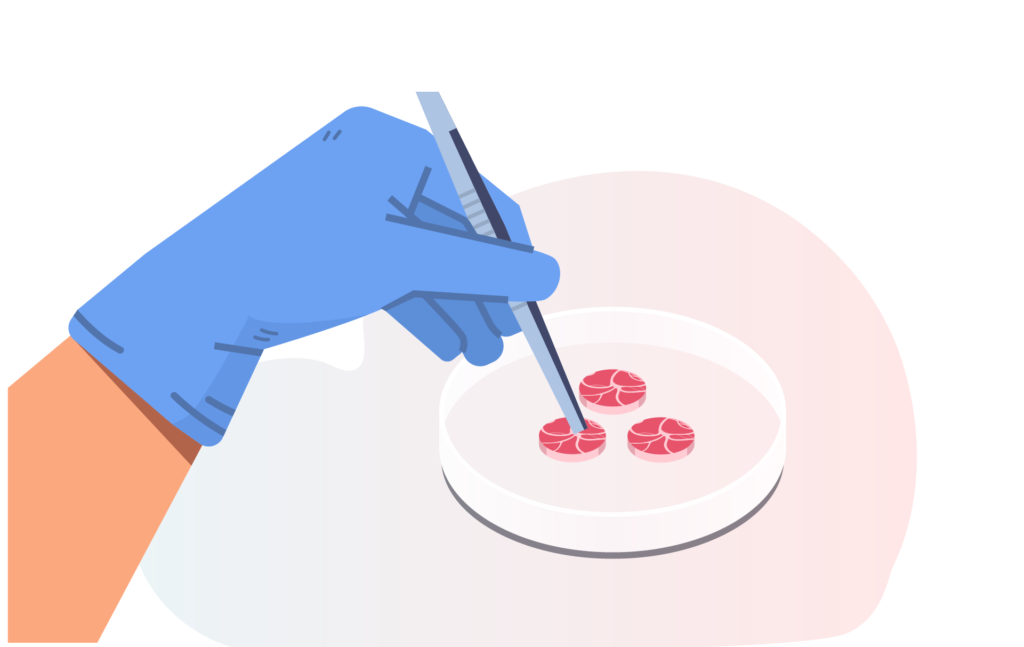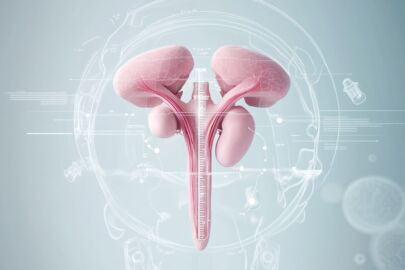
Top Causes of Infertility in Men and Women to Know in 2024 .Contrary to what is generally believed, infertility does not pertain to the female partner alone. People, irrespective of their ages and sexes experience infertility. Similarly, people around the world struggle with infertility physically and emotionally.
So you and your partner are not alone. There is also hope because many couples who undergo infertility treatment conceive successfully. This blog discusses several causes of infertility in men and women, their diagnosis, and treatment methods to give clarity to you in your journey towards fertility.

Also read: Infertility Myths & Facts
Causes of Infertility in Men and Women: What is Infertility?
Infertility is a condition in which people experience trouble conceiving or staying pregnant. This condition affects people of all genders and has different causes. You need to get diagnosed with infertility if you and your partner have been trying to conceive for 12 months or, as the female partner, you have experienced many miscarriages.
Causes of Infertility in Men and Women:
Physicians have diagnosed several causes of infertility in men and women. Some of these are:
- Causes of Infertility in Females:
- Ovulation Disorders:
This is one of the most common causes of infertility in females. Ovulation is the monthly process by which a woman’s ovary releases an egg for fertilization with a sperm. Some of the major causes of ovulation disorders include:
- Polycystic ovary syndrome (PCOS)
- High levels of Prolactin
- Hyperthyroidism
- Hypothyroidism
- Intense workout
- Some eating disorders
- Cancerous tumours and brain tumours
- Uterine Fibroids or Uterine Polyps
The non-cancerous growth appearing on the uterine walls is called uterine polyps or endometrial polyps. Similarly, non-cancerous growths called uterine fibroids also appear in or on the uterus during the childbearing years of a woman. These growths can block the fallopian tubes and prevent the movement of eggs from the ovaries to the uterus. In the same way, they can prevent fertilized eggs from attaching to the uterine walls. Similarly, problems with cervix or poorly-shaped uterus can be causes of infertility in females.
- Endometriosis
This is a condition in which an endometrium-like lining grows outside the uterus. This strange growth causes the defective working of fallopian tubes, uterus, and ovaries, becoming one of the causes of infertility in females.
- Primary Ovarian Insufficiency:
Primary ovarian insufficiency (POI) is a condition when a woman’s ovaries stop working before the age of 40. The causes of POI include genetic conditions, chemotherapy treatment, immune system diseases, and more. Some of the symptoms of infertility in women due to POI include hot flashes, missed periods, vaginal dryness, night sweats, and decreased sex drive.
- Pelvic Adhesions:
Sometimes, fibrous connections can occur between pelvic organs because of scar tissue. Such connections are called pelvic adhesions. Endometriosis can result in this issue. They can also occur due to other inflammatory conditions or surgery.
- Sterilization
Once done by blocking the fallopian tubes, sterilization is not reversible in most cases. A woman undergoes sterilization when she does not want any more children. Even if, in some cases, patients reverse sterilization, such women might still find it challenging to conceive.
- Drugs and Medicines
Some drugs and medicines can have side effects leading to infertility. Some such drugs and medications include:
- NSAIDs (non-steroidal anti-inflammatory drugs) like ibuprofen or aspirin (when a woman uses these medicines for a long time).
- Antipsychotic medicines can sometimes affect the regularity of the menstrual cycle, leading to infertility. Physicians usually prescribe these medicines for the treatment of bipolar disorder and schizophrenia
- Chemotherapy medicines can sometimes lead to failure of ovaries and infertility.
- Marijuana, cocaine, and other illegal drugs make ovulation difficult, thus affecting fertility.
- Spironolactone can lead to temporary infertility, which may recover 2 months after taking the medicine.
- Causes of Infertility in Men:
- Poor Quality of Semen:
The poor quality of semen, the fluid carrying sperm during sex is one of the most important causes of infertility in men. Low sperm count, difficulty in the movement of sperm, and abnormal shapes of sperm are some factors affecting the quality of semen.
- Damage to Testicles:
Some men experience damage to the testicles, the part that produces and stores sperm. Many factors can cause such damage, of which the most important are:
- Infection of testicles
- Surgery of testicles
- Testicular cancer
- A congenital defect to the testicles
- Injury to the testicles
- Sterilization:
Men who do not want to have children or who want to stop reproducing undergo the medical procedure of vasectomy. In the procedure, the tubes that carry sperm from the testicles are either cut off or sealed to prevent the presence of sperm in semen. Reversal of vasectomy rarely become successful.
- Ejaculation Disorder:
Ejaculation is the process by which a man releases semen during sex. Some men experience difficulties in the process, and such ejaculation disorders are leading causes of infertility in men.
- Hypogonadism
Among the causes of infertility in men, hypogonadism is a result of low levels of the male sex hormone testosterone. This condition affects the production of sperm. Many factors lead to hypogonadism. Some of these are:
- Klinefelter Syndrome
- Taking Illegal drugs
- Tumor
- Medicines and drugs
Certain medications also become causes of infertility in men. These include:
- Sulfasalazine treats Crohn’s disease, rheumatoid arthritis, and other such conditions. The medicine can lower the sperm count temporarily.
- Anabolic steroids can reduce the count and mobility of sperm if the medicine is misused a lot. The medicine is sometimes used illegally to improve athletic performance and build muscle.
- Chemotherapy medicines can affect sperm count
- Marijuana, cocaine, and other illegal drugs
- Some herbal remedies reduce testicle size or affect sperm production
How Are the Causes of Infertility in Men and Women Tested and Diagnosed?
The testing and diagnosis of the different causes of infertility in men and women begins with the analysis of the full medical and health history of a patient. The following are some ways in which the causes of infertility in men and women are tested and diagnosed:
Infertility Tests for Women:
- Pelvic exam to determine any sign of disease or structural problems.
- Blood test to analyze hormonal imbalance
- Transvaginal ultrasound to decide issues with your reproductive system.
- Hysteroscopy to examine your uterus.
- Transvaginal ultrasound using saline sonohysterogram (SIS)
- Sono hysterosalpingogram (HSG) during the SIS procedure to check for tubal occlusion or fallopian tube blockage
- X-ray hysterosalpingogram (HSG) to decide blockages in the fallopian tube.
- Laparoscopy to identify uterine fibroids, scar tissues, endometriosis, or other such problems.
Infertility Tests for Men:
Infertility tests for men test whether a man is ejaculating and whether the sperm is healthy. Some of these tests include:
- Semen analysis to rule out low sperm count or poor mobility of sperm. This can also include a needle biopsy to take sperm directly from the testicles for testing.
- A blood test to check hormone levels.
- Genetic blood tests to rule out chromosomal abnormalities.
- Scrotal ultrasound to identify testicular problems such as varicoceles
Causes of Infertility in Men and Women: Factors that Worsen Them
Some health and lifestyle-related factors can worsen the causes of infertility in men and women. These include:
- Aging more than 35 years old
- Overweight or underweight
- Radiation or chemotherapy
- Exposure to environmental toxins
- Misuse of drugs or alcohol
- Cigarette smoking
- Undetected cases of chlamydia/gonorrhea
- Pelvic inflammatory disease history
- Scrotum injury
- Overheated testicles
- Undescended testicles
Management and Treatment of the Causes of Infertility in Men and Women:
How is infertility treated?
The treatment process often depends on the causes of infertility in men and women. Some decisive factors for treatment include:
- Age
- Time spent trying to conceive
- Personal preferences
In some cases, only one person needs treatment. In other cases, both partners would require treatment.
Treatment of infertility includes one or a combination of things like medicines, assisted reproductive technology (ART), surgery, lifestyle changes, and changing the frequency and timing of intercourse.
Causes of Infertility in Men and Women: Infertility Treatment for Women:
The infertility treatment for women includes the following methods:
- Stopping the usage of cigarettes or drugs
- Gaining or losing weight
- Improving health conditions to conceive
- Taking ovary-stimulating drugs
- Surgery to remove polyps, fibroids, or scar tissue
- Surgery to open the fallopian tube
Your health providers may also suggest other methods to improve your chances of conception. These include:
- Using a fertility tracking app to analyze ovulation through basal body temperature.
- Analyzing the texture of cervical mucus through the menstrual cycle.
- Using an ovulation kit to predict ovulation
Causes of Infertility in Men and Women: Infertility Treatment for Men:
The following are some methods of infertility treatment in men:
- Medicines to improve the level of hormones such as testosterone
- Taking medicines to correct erectile dysfunction
- Varicocele surgery to improve the health of sperm
- Surgeries to open fallopian tube blockage
Conclusion:
It is estimated that about 90% of couples who undergo treatment for infertility conceive successfully. However, the success rates also depend on age and other factors. Infertility can have both physical and emotional effects on the couple. They may also experience financial and psychological hardships because of infertility.
At the IVF, assisted reproduction & infertility department at Credence Hospital, you not only experience the best infertility diagnosis and treatment. You would surround yourself with care and support that pay equal attention to your physical and mental health while dealing with infertility.



